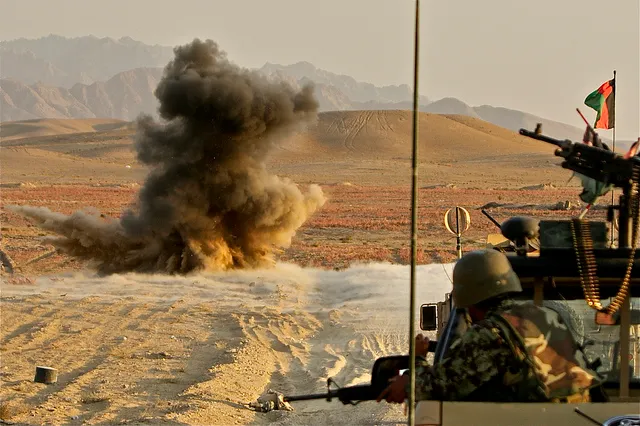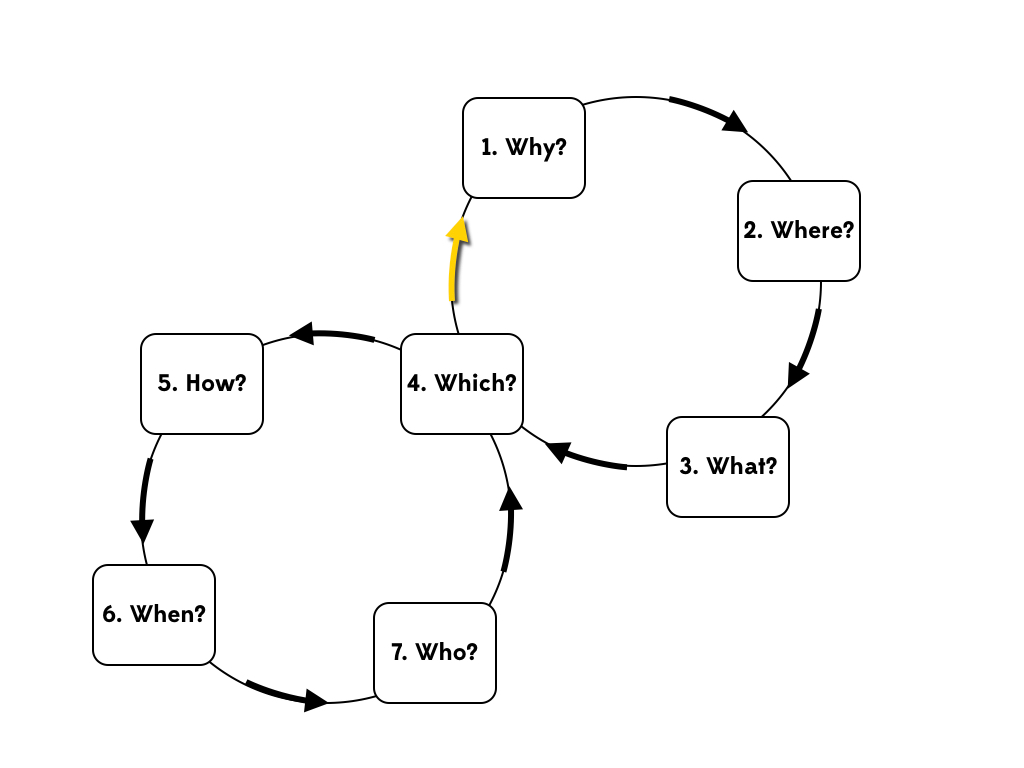We need to be continually assessing our decisions and learning from our actions; especially from our mistakes. This goes for everyone, but particularly for leaders.
“If history repeats itself, and the unexpected always happens, how incapable must Man be of learning from experience.”
George Bernard Shaw
Bomb disposal: where mistakes can be costly
After a couple of years of experience in Bomb Disposal, I went to Africa with my unit. We were there to clear an area that was littered with bombs of various descriptions. My troops, with the help of some local tribesmen, scoured the bush looking for anything that might go bang. They would call me up when they found something. But, as there was no shortage of ordnance, they would stockpile munitions (if they were safe to move) so that they could be dealt with in one go.
On this particular day, I was with my Non-Commissioned Officers and we went together to sort out the latest haul. The Staff Sergeant and I had passed our training together and we got on very well, so it was a pleasure to spend some time working in unison. Today we had a pile of artillery shells to dispose of, a fairly simple task.
It looked like a good plan until…
And so we made a quick plan. We worked the explosive charge we needed to use, then all we had to do was light the fuse and withdraw to a safe distance. We had not been able to get the Landrover right up to the site, because of the difficult terrain. So, we chose a spot in the distance – a hill that offered some cover from the blast – that we could walk to. We then cut the fuse to the right length in order to allow us enough time to get there.
After checking our work we lit the fuse, checked our watches and set off towards the small hill. That was to be our protective cover. We chatted about important things, such as how many letters we had received that week and how much we wanted a cold beer. The funny thing was that the escarpment was not getting any closer; so we increased our pace. Still, we laughed and joked as we walked briskly along.
But, another look at our watches gave us some cause for alarm.
Free Personal Leadership Action Plan
Just sign up here to receive your free copy
We realised we had made a mistake
At this point, we broke into a run.
There was no longer laughing or even chatting. All that was said was, “We are not going to get there in time, do you see any other cover?” We spotted what seemed to be a series of gullies over to our left so we headed towards them. Upon reaching them our relief quickly turned back to anxiety. Even though the gullies were deep, the shallow angle of the slopes would afford us little cover. We ran on.
At this point in the proceedings, I sent up one of my most eloquent prayers. It went something like this: “GOD HELP!” We only had seconds to go and so we dived into a shallow pit. We had to crouch down with our backs to the sand to keep our heads below the parapet.
The explosion
For a few seconds, the only sound was our thumping hearts, heavy breathing and the noise of a nonchalant fly investigating my hat. Then we felt the explosion – a pulse through the earth and a punch through the air. We looked at one another. No words were exchanged but much was communicated. We were both thinking the same thing: that was a bigger bang than expected; we felt dreadfully close!
I was hoping that (from the way we had positioned the munitions) the blast would be mostly directed into the ground. But then there came a sound that made me flinch. It was like an angry hornet going past my ear, and then there was another, followed by little thuds and puffs of sand as the shrapnel came down around us. As the deadly rain struck the ground there was little we could do, so I opted to laugh and my colleague used a varied, colourful (but sadly unrepeatable) string of words to express his feelings.
Learning from mistakes
When our self-induced bombardment came to an end and it was obvious we were both not only alive but also unharmed. Therefore we spent a few precious seconds enjoying the quiet. After our short pause, we decided to walk back to the site and review our procedures before moving onto the next cache of weaponry. It was obvious that we had some important lessons to learn.
“It’s fine to celebrate success but it is more important to heed the lessons of failure.”
Bill Gates
We had gone through the whole process of making and executing a plan. Something had gone wrong and therefore we needed to reflect and learn from that. In this case, a good plan was undermined by simple heuristics. I used a ‘unit of measure’ heuristic to judge the distance from where we were, to where we needed to get to for our safety. Because of the lack of features in the terrain – things like trees that I knew the size of and could compare – I inaccurately estimated the distance we needed to travel, and therefore underestimated the length of fuse needed for our controlled explosion.
This usually good heuristic was undermined by those spatial effects and my own cognitive bias. I allowed what I thought I could see to affect my perception (a framing effect) and then allowed what I thought my plan should be to shape how I interpreted the data (confirmation bias). In psychological terms, my System 1 (fast) thinking undermined my System 2 (slow) thinking.
As I walked back, post-explosion, I knew that I had other demolition tasks that I had to go to. I reflected, realised my mistake, and that reflective process allowed me to learn from the experience and avoid making the same mistake again.
Leadership Development: Master the Top Leadership and Life Skills
Better lead in life and work to maximise your success. Sign up and access materials for free!
Building reflection into the decision-making process
Sometimes you just can’t help making mistakes. Hopefully, as in my case, you can survive and learn from the error. To enable this we should always build in time to reflect and learn. Fortunately, if you think of decision-making as cyclical, rather than linear, then it lends itself to doing just that.
The fact is that the process of planning, looking at options and making decisions does not ever stop. We may start with a more in-depth planning process but we will constantly be making new decisions, reviewing our progress and adapting our plans. This is why the cycle of decision making never ceases, as we see in the illustration below.
The trick is, as we move forward, to make sure we take time to pause and reassess our plans as we go.
Constant change requires constant reflection and improvement
The world and our situation are constantly changing. We need flexibility in order to adapt as we go. Sometimes this happens through subtle transformation, sometimes through more formal change management. However we do it, if we want to learn and be more effective, we need a process of reviewing our actions and decisions.
This can be just taking an objective pause to reflect in the decision-making process, as happens under the ‘which’ step within The Right Questions framework (number 4 in the picture above).
When is the best time for reflection and learning?
Some pauses may be longer than others. We need pit stops as well as the end of race review; time out huddles, as well as the big post-match, debrief. It is worth planning these in through the life of a project. Sometimes it is hard to stop to review because we feel we should be getting on with something. At times like this, we need to remember progress is no good if it is in the wrong direction. We need to take time to stop and check.
In the end, when we need a post-project review, it is easy to put it in the programme but requires real discipline to actually do it. It can be hard to enforce a time of reflection at a time when people just want to celebrate or they just want to move on it to the next thing. Once you have achieved a goal, especially when it goes well, the temptation is to skip over the review. Don’t. There are always important things to learn at this stage. If you discuss them and record them, then others can learn from your experiences too.
History may repeat itself because people fail to read history, but don’t be guilty of not giving people the chance to learn in the first place. Take the time out to share.
Whatever point in our journey we have reached, after a review we can decide which things in our plan need to change and which things remain the same. Most importantly we can identify success and plan to build on it.
Failing is just learning to succeed
What about things that did not go so well? We can be afraid of failure and afraid to admit it when we do fail, therefore we need to change the way we see things when they don’t go to plan. If something has gone wrong then we can turn it into a learning opportunity.
Thomas Edison, the great empirical inventor, knew the value of learning from apparent failure. He had thousands of attempts to create an effective electric light bulb, but those that did not work he did not consider failures, just as positive proofs of how not to make a light bulb! Even after his initial patent, he continued to refine his light bulb design for decades afterwards. His approach to reviewing and applying lessons was lifelong and contributed to him being the fourth most prolific inventor in history. Edison said:
“Many of life’s failures are people who did not realize how close they were to success when they gave up.”
Thomas Edison
And that is a good lesson to end with. Not to give up, never to give in, no matter what the challenges are. Take a moment to reflect and learn right now: which heroic failures have you learned from?





